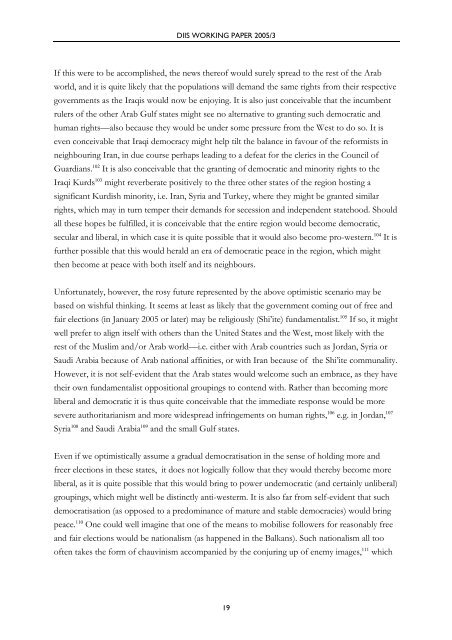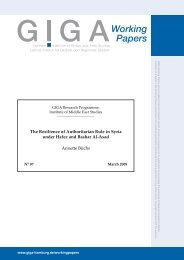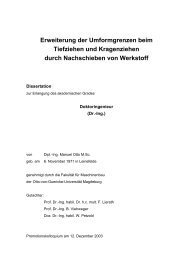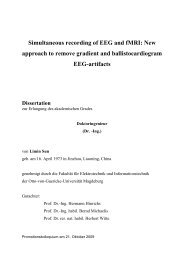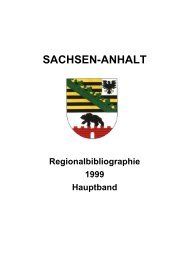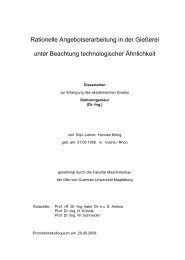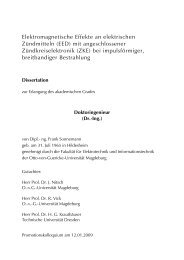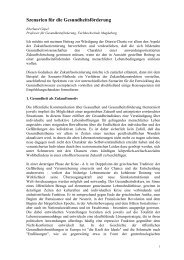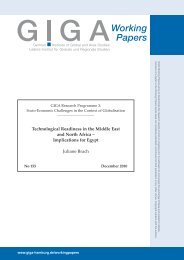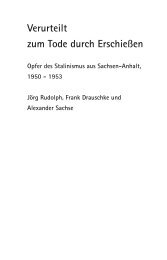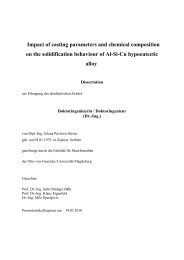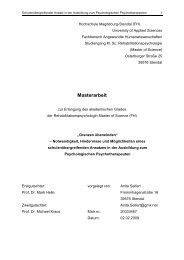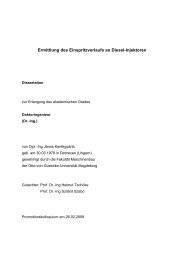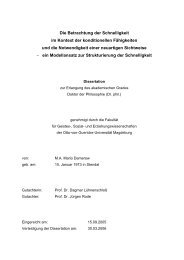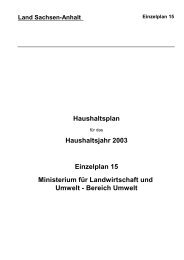DANISH INSTITUTE FOR INTERNATIONAL STUDIES ...
DANISH INSTITUTE FOR INTERNATIONAL STUDIES ...
DANISH INSTITUTE FOR INTERNATIONAL STUDIES ...
Create successful ePaper yourself
Turn your PDF publications into a flip-book with our unique Google optimized e-Paper software.
DIIS WORKING PAPER 2005/3<br />
If this were to be accomplished, the news thereof would surely spread to the rest of the Arab<br />
world, and it is quite likely that the populations will demand the same rights from their respective<br />
governments as the Iraqis would now be enjoying. It is also just conceivable that the incumbent<br />
rulers of the other Arab Gulf states might see no alternative to granting such democratic and<br />
human rights—also because they would be under some pressure from the West to do so. It is<br />
even conceivable that Iraqi democracy might help tilt the balance in favour of the reformists in<br />
neighbouring Iran, in due course perhaps leading to a defeat for the clerics in the Council of<br />
Guardians. 102 It is also conceivable that the granting of democratic and minority rights to the<br />
Iraqi Kurds 103 might reverberate positively to the three other states of the region hosting a<br />
significant Kurdish minority, i.e. Iran, Syria and Turkey, where they might be granted similar<br />
rights, which may in turn temper their demands for secession and independent statehood. Should<br />
all these hopes be fulfilled, it is conceivable that the entire region would become democratic,<br />
secular and liberal, in which case it is quite possible that it would also become pro-western. 104 It is<br />
further possible that this would herald an era of democratic peace in the region, which might<br />
then become at peace with both itself and its neighbours.<br />
Unfortunately, however, the rosy future represented by the above optimistic scenario may be<br />
based on wishful thinking. It seems at least as likely that the government coming out of free and<br />
fair elections (in January 2005 or later) may be religiously (Shi’ite) fundamentalist. 105 If so, it might<br />
well prefer to align itself with others than the United States and the West, most likely with the<br />
rest of the Muslim and/or Arab world—i.e. either with Arab countries such as Jordan, Syria or<br />
Saudi Arabia because of Arab national affinities, or with Iran because of the Shi’ite communality.<br />
However, it is not self-evident that the Arab states would welcome such an embrace, as they have<br />
their own fundamentalist oppositional groupings to contend with. Rather than becoming more<br />
liberal and democratic it is thus quite conceivable that the immediate response would be more<br />
severe authoritarianism and more widespread infringements on human rights, 106 e.g. in Jordan, 107<br />
Syria 108 and Saudi Arabia 109 and the small Gulf states.<br />
Even if we optimistically assume a gradual democratisation in the sense of holding more and<br />
freer elections in these states, it does not logically follow that they would thereby become more<br />
liberal, as it is quite possible that this would bring to power undemocratic (and certainly unliberal)<br />
groupings, which might well be distinctly anti-westerm. It is also far from self-evident that such<br />
democratisation (as opposed to a predominance of mature and stable democracies) would bring<br />
peace. 110 One could well imagine that one of the means to mobilise followers for reasonably free<br />
and fair elections would be nationalism (as happened in the Balkans). Such nationalism all too<br />
often takes the form of chauvinism accompanied by the conjuring up of enemy images, 111 which<br />
19


